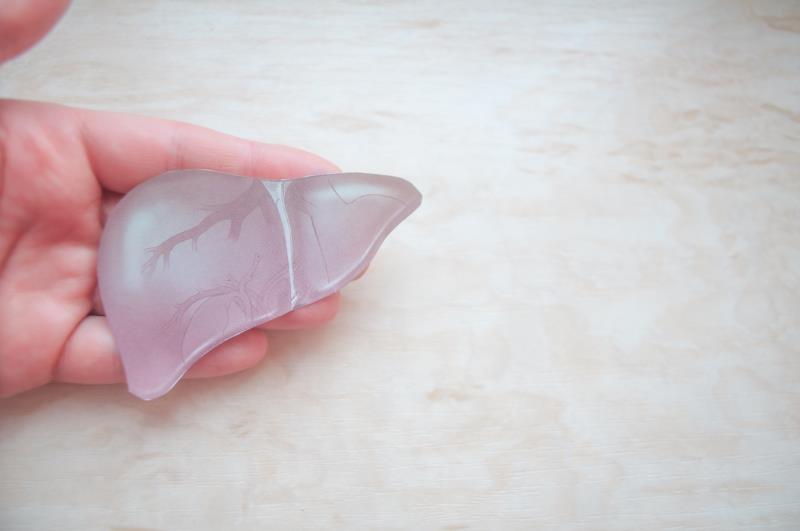Atezolizumab-bevacizumab improves OS in older HCC patients





Older patients (aged ≥65 years) with unresectable hepatocellular carcinoma (HCC) may derive greater survival benefit with an atezolizumab + bevacizumab combination compared with sorafenib, according to results of a subgroup analysis of the IMbrave150 trial presented at ESMO GI 2020.
“Similar to the IMbrave150 intention-to-treat population, older adults with previously untreated, unresectable HCC derived a clinically meaningful benefit from atezolizumab-bevacizumab vs sorafenib [with] overall survival (OS), progression-free survival (PFS), and objective response rate (ORR) benefit[s] consistent across ages,” said Dr Daneng Li from the City of Hope Comprehensive Cancer Center, Duarte, California, US.
Systemic therapy-naïve patients (n=501) with locally advanced or metastatic and/or unresectable HCC were randomized 2:1 to receive intravenous atezolizumab (1,200 mg) plus bevacizumab (15 mg/kg) Q3W or sorafenib (400 mg BID) until loss of clinical benefit or unacceptable toxicity.
The present findings are from the subgroup analysis of 252 older patients (aged ≥65 years; median age 71 years). Twenty-two and 20 percent of patients in the atezolizumab-bevacizumab and sorafenib groups, respectively, were female, 26 and 24 percent, respectively, were from Asia (excluding Japan), and 44 and 45 percent, respectively, were of non-viral HCC aetiology. Patients aged ≥65 years were more likely to have certain comorbidities and concomitant medication use than their younger counterparts.
After a median 8.6-month follow-up period, OS favoured the atezolizumab-bevacizumab vs sorafenib arm in patients aged ≥65 years (median not evaluable vs 14.9 months; hazard ratio [HR]unstratified, 0.58, 95 percent confidence interval [CI], 0.36–0.92). [ESMO GI 2020, abstract O-8]
This finding was consistent with that of younger patients (aged <65 years; median OS not evaluable vs 11.4 months; HRunstratified, 0.59, 95 percent CI, 0.38–0.91), and that of the overall population (median OS not evaluable vs 13.2 months; HRstratified, 0.58, 95 percent CI, 0.42–0.79; p<0.001). [N Engl J Med 2020;382:1894-1905]
PFS among patients aged ≥65 years was also greater with atezolizumab-bevacizumab vs sorafenib (median 7.7 vs 4.8 months; HRunstratified, 0.63, 95 percent CI, 0.45–0.89), similar to that in the <65 years age group (median 6.7 vs 2.9 months; HRunstratified, 0.50, 95 percent CI, 0.36–0.71).
In the response-evaluable population, ORR was greater in the atezolizumab-bevacizumab vs sorafenib arm, in both patients ≥65 years (26 percent vs 13 percent) and <65 years (29 percent vs 10 percent). Complete response was achieved by 5 and 6 percent of patients aged ≥65 and <65 years, respectively, in the atezolizumab-bevacizumab arm.
Exploratory analysis of patient-reported outcomes including physical or role functioning, quality of life, abdominal swelling, loss of appetite, diarrhoea, fatigue, jaundice, pain, and nutrition favoured the atezolizumab-bevacizumab arm.
Among atezolizumab-bevacizumab recipients, adverse events (AEs) occurred at a comparable rate between recipients aged ≥65 and <65 years. Grade 3–4 treatment-related AEs occurred in 39 and 32 percent, respectively, while treatment-related serious AEs occurred in 18 and 16 percent, respectively. AEs led to dose interruption (of any treatment) in 55 and 44 percent of patients aged ≥65 and <65 years, and from withdrawal of any study drug in 19 and 12 percent, respectively.
The most common AEs (occurring in ≥15 percent) in atezolizumab-bevacizumab recipients aged ≥65 years were hypertension and fatigue (32 and 27 percent, respectively), and among patients aged <65 years, hypertension (27 percent), proteinuria, and elevated aspartate aminotransferase (23 percent each).
“Safety of atezolizumab-bevacizumab in older adults is generally consistent with that in younger patients, with no significant added risks or toxicities, despite higher rates of baseline comorbid medical conditions,” highlighted Li.
“Atezolizumab plus bevacizumab should be considered as a practice-changing treatment even amongst older adults with unresectable HCC who have not received prior systemic treatment,” he added.